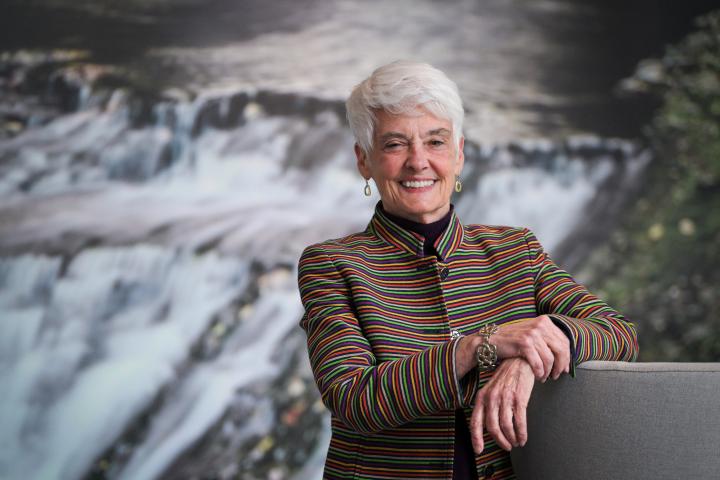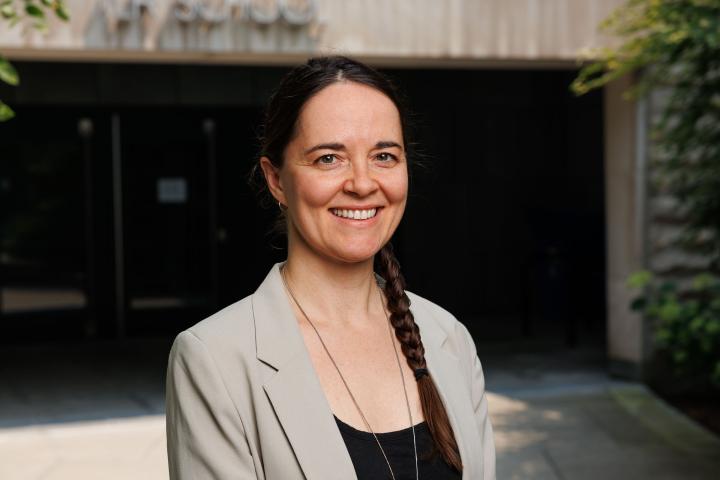
Two Grants to Study AI and Worker Voice Awarded to ILR
Artificial intelligence (AI) is causing a major shift in today’s workplace and raising many concerns. Two new grants from the Washington Center for Equitable Growth will fund ILR research aimed at providing insights to policymakers, union leaders, managers and others who are shaping the future of AI in the workplace.
One study will focus on health care workers, and the other will compare different occupations in telecommunications and game development. Each study has its own questions about the relationships between AI and unions, management, and workers, and each takes its own methodological approach.
AI at Kaiser Permanente
Principal investigator Adam Seth Litwin, ILR associate professor, and Ariel Avgar, Ph.D. ’08, ILR’s David M. Cohen ’73 Professor of Labor Relations, will use their grant for a case study project with Kaiser Permanente.
The project, “Bringing Worker Voice into the Development, Design, and Use of AI: A Case Study of the Labor Management Partnership at Kaiser Permanente,” will build on research showing that workers benefit more from AI if they are involved in its design, development and implementation in their workplaces. The research team, which includes Thomas Kochan, a professor at the MIT Sloan School of Management, will investigate how to best bring workers and their representatives into AI-infused production and service delivery processes.
Litwin hopes to find ways for AI to improve healthcare. “The U.S. healthcare sector has long underperformed relative to the healthcare systems of other advanced, industrialized nations,” Litwin said. “AI could be part of the solution – but not if technologically-enabled attempts to boost efficiency and quality exacerbate poor wages and working conditions.”
Specifically, Litwin and Avgar plan to examine how labor and management can negotiate and implement strategies for strengthening worker voice early in the design, development and use of AI, and they will assess if these strategies lead to improved job quality and patient care.
“AI will shape the ‘Future of Work’ in healthcare, just as it will in every sector. If we embed worker interests in these tools from the start, I suspect it will be a brighter future,” Litwin said. According to Litwin, AI could allow the U.S. to make “great strides” in improving access to quality care while lowering costs.
The study combines action-based research and a structured case study assessment: Litwin and Avgar have already assisted Kaiser Permanente and the Alliance of Health Care Union, which represents 57,000 Kaiser Permanente employees, to set a framework for labor-management negotiations to address AI-related issues. They also plan to act as participant observers in these negotiations and to assess the implementation of the agreement for a period of two years.
The labor-management partnership at Kaiser Permanente offers a unique opportunity to study the costs and benefits of worker involvement in the changes to work around AI. “The findings could suggest opportunities to other employers for incorporating worker interests into strategic decision-making around new technologies,” Litwin said.
AI in Telecommunications and Game Development
Virginia Doellgast, the Anne Evans Estabrook Professor of Employment Relations and Dispute Resolution, is coordinating a research project on the adoption of AI in telecommunications and game development, two industries that have been early adopters of AI-based tools. Co-investigators are John McCarthy, an associate professor at ILR, and Sean O’Brady, an assistant professor at the DeGroote School of Business. The research team also includes ILR Future of Work Postdoctoral Associate Adam Schoenbachler, SSHRC Postdoctoral Fellow Jelena Starcevic, and ILR Ph.D. students Jeonghun Kim and Stefan Ivanovski.
The project, “AI in telecommunications and game development: The role of worker voice in management strategy and job quality,” will compare company strategies to adopt and deploy AI and digital technologies in service and technical occupations. These include call center agents and technicians in telecommunications as well as quality assurance testers and software engineers in game development.
“These jobs are all being significantly impacted by AI technologies,” Doellgast said. She explained that these technologies “can be used to deskill jobs, replace workers and intensify work, or to improve service quality and give workers more time for the interesting and creative parts of their jobs.”
Examples of these technologies include chatbots and coding assistants, as well as algorithmic management tools that automate worker coaching and monitoring.
The study will examine the causes of differences in company strategies for implementing AI-based tools and how these strategies impact job quality. The research design will include interviews, case studies, surveys, and analysis of collective agreements. This mixed-method approach will allow comparisons of roles and relationships in terms of worker skills and experience, management practices, and worker voice through labor unions and collective bargaining.
The project will be conducted in coordination with the Communications Workers of America (CWA), which represents workers in both telecoms and game development. It builds on a study Doellgast and O’Brady did with the CWA on the use of AI-based tools in call centers, called “AI in Contact Centers: Artificial Intelligence and Algorithmic Management in Frontline Service Workplaces.” The research team is also coordinating surveys and case studies with colleagues in Canada, the U.K. and Italy, which will allow them to compare outcomes cross-nationally.
Findings will be shared with labor union, management, and policy audiences through reports and workshops, with the goal of encouraging productive and socially sustainable approaches to AI.
Doellgast hopes the research will inform decisions about how to best use AI-based technologies in the workplace. “Our goal is to support more informed decision-making by different stakeholders – unions, employers and policy-makers – as they seek to use and regulate these technologies in more effective ways.”
About the Funder
The Washington Center for Equitable Growth is a nonprofit research and grantmaking organization dedicated to advancing evidence-backed ideas and policies that promote strong, stable and broad-based economic growth. Core to its mission is helping to build a stronger bridge between academics and policymakers so that new research is relevant, accessible, and informative to the policymaking process.


